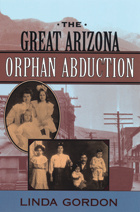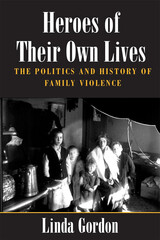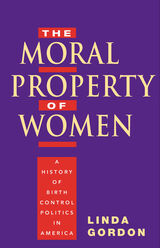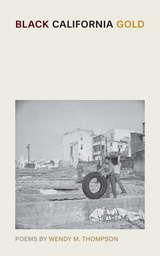
In 1904, New York nuns brought forty Irish orphans to a remote Arizona mining camp, to be placed with Catholic families. The Catholic families were Mexican, as was the majority of the population. Soon the town's Anglos, furious at this "interracial" transgression, formed a vigilante squad that kidnapped the children and nearly lynched the nuns and the local priest. The Catholic Church sued to get its wards back, but all the courts, including the U.S. Supreme Court, ruled in favor of the vigilantes.
The Great Arizona Orphan Abduction tells this disturbing and dramatic tale to illuminate the creation of racial boundaries along the Mexican border. Clifton/Morenci, Arizona, was a "wild West" boomtown, where the mines and smelters pulled in thousands of Mexican immigrant workers. Racial walls hardened as the mines became big business and whiteness became a marker of superiority. These already volatile race and class relations produced passions that erupted in the "orphan incident." To the Anglos of Clifton/Morenci, placing a white child with a Mexican family was tantamount to child abuse, and they saw their kidnapping as a rescue.
Women initiated both sides of this confrontation. Mexican women agreed to take in these orphans, both serving their church and asserting a maternal prerogative; Anglo women believed they had to "save" the orphans, and they organized a vigilante squad to do it. In retelling this nearly forgotten piece of American history, Linda Gordon brilliantly recreates and dissects the tangled intersection of family and racial values, in a gripping story that resonates with today's conflicts over the "best interests of the child."

Powerful and moving, Heroes of Their Own Lives offers an honest understanding of a persistent problem and a realistic view of the difficulties in stopping it.


With three-fourths of all poor families headed by women and about 54 percent of single-mother families living below the poverty line, a rethinking of the fundamental assumptions of our much-reviled welfare program is clearly necessary. Here, Linda Gordon unearths the tangled roots of AFDC (Aid to Families with Dependent Children). Competing visions of how and to whom public aid should be distributed were advanced by male bureaucrats, black women's organizations, and white progressive feminists. From their policy debates emerged a two-track system of public aid, in which single mothers got highly stigmatized "welfare" while other groups, such as the aged and the unemployed, received "entitlements."
Gordon strips today's welfare debates of decades of irrelevant and irrational accretion, revealing that what appeared progressive in the 1930s is antiquated in the 1990s. She shows that only by shedding false assumptions, and rethinking the nature of poverty, can we advance a truly effective welfare reform.

READERS
Browse our collection.
PUBLISHERS
See BiblioVault's publisher services.
STUDENT SERVICES
Files for college accessibility offices.
UChicago Accessibility Resources
home | accessibility | search | about | contact us
BiblioVault ® 2001 - 2025
The University of Chicago Press









